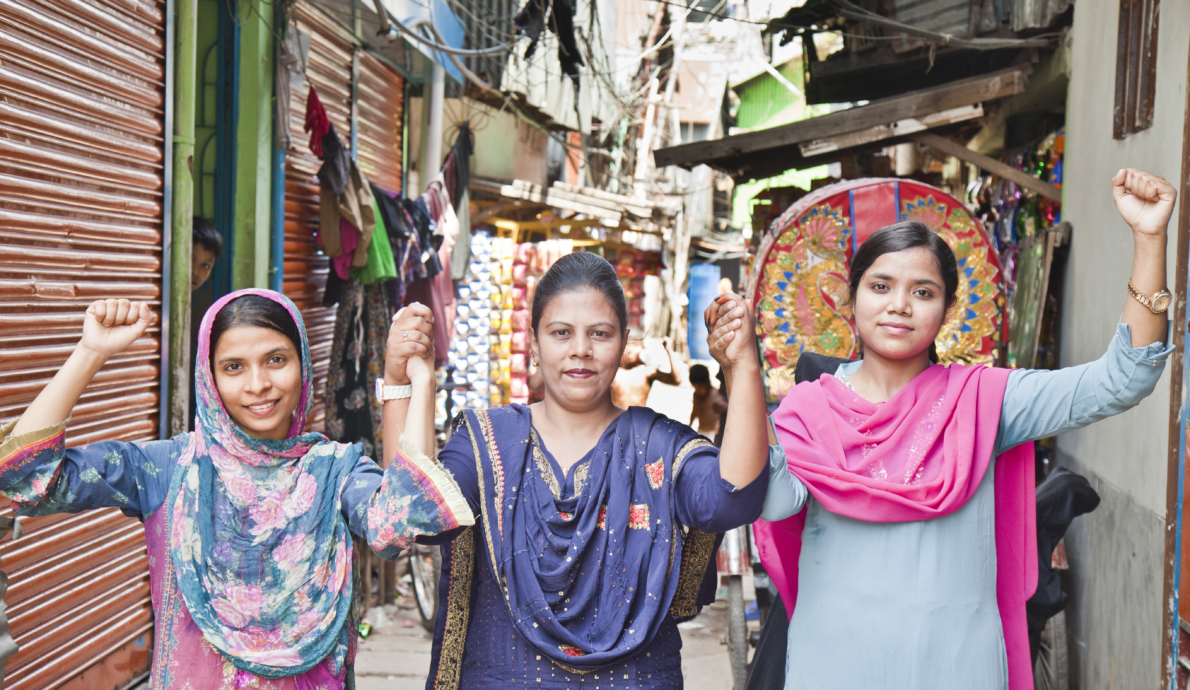This blog is part of a series of articles written by University of Dayton students, published as part of Counterpart’s Next Generation in Thought Leadership initiative. The opinions expressed in this article are the author’s and do not express the views or opinions of Counterpart International.
The survival of the global community has been challenged in ways not experienced in recent times. With an already high demand for foreign aid in countries around the world, the fight against the coronavirus has exacerbated underlying problems with the provision of aid and the root causes of global inequalities that aid is intended to address. Because of the critical role that education plays in creating pathways for gender equality, pressing issues in USAID’s agenda must be promoting access to education for girls and supporting women’s empowerment in light of the negative impact of the pandemic on these particular areas.
Education is crucial to achieving gender equality as it supports women to participate meaningfully in economic, political, and communal areas of society with men. As hard as it is for some girls to gain access to quality education, it continues to be difficult for young women to retain that access and complete educational milestones. The global dropout rate of girls before completing primary school is already around 100 million, but that number is expected to rise due to the family responsibilities of girls in various cultures, which are prioritized over their education, particularly during a pandemic.
The Impact of COVID-19
Access to quality education for girls requires even more attention globally in light of the impact of COVID-19. As the pandemic continues, international development agencies such as USAID will need to reframe their aid programs. In some ways, it is fortunate that the global community has experience with the impact of pandemics and other crises on aid projects prior to COVID-19. From these prior experiences, we have identified lessons learned and recommendations which USAID and its NGO partners might find useful in the recovery of education projects affected by the pandemic.
First, previous crises show the widespread negative effects that dropping out of school has on girls around the world. Girls who drop out early are more likely to enter into early marriage and early pregnancy. The deterioration of learning affects earning potential and livelihoods. When responses to the pandemic include school closures, illness or death in the family, and/or quarantines, women and girls are subjected to additional household, family, and childcare work, and are at increased risk of sexual exploitation and domestic violence. After the Ebola epidemic, girls in Sierra Leone took desperate measures like selling stones, fruit, or scrap metal and even resorting to transactional sex to support their families.
Second, the lived experience of the pandemic has revealed the continuing underlying vulnerabilities and inequities faced by women and girls globally. In Ecuador, data shows that girls do twice as much work as boys with studying and housework. In the Philippines, female medical students are facing increased reports of mental health difficulties. The pandemic has not only increased the chance of girls dropping out and not returning to school, but also the risk of violence against girls and women. This violence comes in the form of exploitation and sexual abuse, early marriage, early pregnancy, less access to digital technology and public spaces, and more overall trauma and disempowerment.
Moving forward
As the pandemic persists, it is crucial that all girls and women, including the most marginalized, have access to education. There are specific ways that aid programs can adjust. Around the world, organizations and governments are finding ways to keep girls in school. For example, in Sierra Leone after Ebola, the government set aside school fees for two academic years to motivate parents to continue their children’s education. Another approach is to increase community support for girls’ education. These campaigns promote community-wide value to educating girls by incentivizing girls’ attendance and supporting distance-learning; countries such as Sierra Leone have found it beneficial to use programs like “radical inclusion” and “comprehensive safety” to encourage pregnant girls and adolescent mothers to attend school.
While not all aid programs address access to education, programs can be tailored to include improving the safety of women and girls who are out of school, focusing on prevention, protection, and support. These programs should support not only physical security, but also mental and emotional well-being. Aid agencies like USAID should continue working with local governments, community-based organizations, development organizations, and schools to monitor the well-being of this vulnerable population and provide specific funding and community-based interventions.
Conclusion
As COVID-19 rages on, there will still be much for NGOs and governments to do regarding the overall well-being of girls and women. Now is the time to double down on promoting this basic human right which is foundational to gender equality: education. The challenges faced by women and girls are not unique to this time; early marriage, early pregnancy, and violence are longstanding globally and are only exacerbated by COVID-19. However, there is evidence of what can be done to address them if international and community organizations are able to revitalize and innovate their programs to meet today’s context and challenges.




